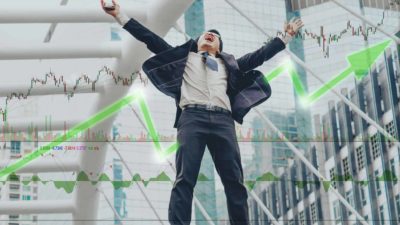The share prices of ASX coal miners dropped today after Blackrock said it was going to exit thermal coal miners.
The Whitehaven Coal Ltd (ASX: WHC) share price fell almost 2% and the New Hope Corporation Limited (ASX: NHC) share price declined by 0.5%.
Blackrock is the world's largest investment manager with almost US$7 trillion of assets under management (AUM) at September 2019.
The asset manager said that it would exit thermal coal producers within its US$1.8 trillion active AUM. Indeed, Blackrock said:
"Thermal coal is significantly carbon intensive, becoming less and less economically viable, and highly exposed to regulation because of its environmental impacts. With the acceleration of the global energy transition, we do not believe that the long-term economic or investment rationale justifies continued investment in this sector. As a result, we are in the process of removing from our discretionary active investment portfolios the public securities (both debt and equity) of companies that generate more than 25% of their revenues from thermal coal production, which we aim to accomplish by the middle of 2020. As part of our process of evaluating sectors with high ESG risk, we will also closely scrutinize other businesses that are heavily reliant on thermal coal as an input, in order to understand whether they are effectively transitioning away from this reliance. In addition, BlackRock's alternatives business will make no future direct investments in companies that generate more than 25% of their revenues from thermal coal production."
It has been pointed out many times that one shareholder selling shares to another investor doesn't change or hurt the operations of the coal miner (or any other business). However, increasing the number of sellers and removing buyers from the market for coal miners does hurt the share price, and therefore hurts the remaining shareholders. More active action on climate policy is being taken by miners like BHP Group Ltd (ASX: BHP).
In a letter to investors, Blackrock CEO Larry Fink said that climate risk is investment risk, calling on every government, company and shareholder to confront climate change. He also said that "We will be increasingly disposed to vote against management and board directors when companies are not making sufficient progress on sustainability-related disclosures and the business practices and plans underlying them."
Mr Fink thinks that the global economy is on the edge of a fundamental reshaping of finance. He raised a number of questions about the future, writing:
"Will cities, for example, be able to afford their infrastructure needs as climate risk reshapes the market for municipal bonds? What will happen to the 30-year mortgage – a key building block of finance – if lenders can't estimate the impact of climate risk over such a long timeline, and if there is no viable market for flood or fire insurance in impacted areas? What happens to inflation, and in turn interest rates, if the cost of food climbs from drought and flooding? How can we model economic growth if emerging markets see their productivity decline due to extreme heat and other climate impacts?"
As you might expect, Australia's Prime Minister Scott Morrison leapt to the defence of coal miners again. He said that coal is worth $70 billion a year to the Australian economy. His government still plans to "meet and beat" the emissions reductions targets without "putting taxes on people, putting up electricity prices and pulling out the rug from regional communities who depend on the sector for their livelihoods."
Foolish takeaway
Coal mining is unlikely to exist in its current form in 50 years from now, but as long as there are countries and businesses wishing to buy coal (and no export bans) there will continue to be coal sent from Australia's shores in the foreseeable future. But, I wouldn't want to buy into a coal miner today because of the poor growth prospects.








